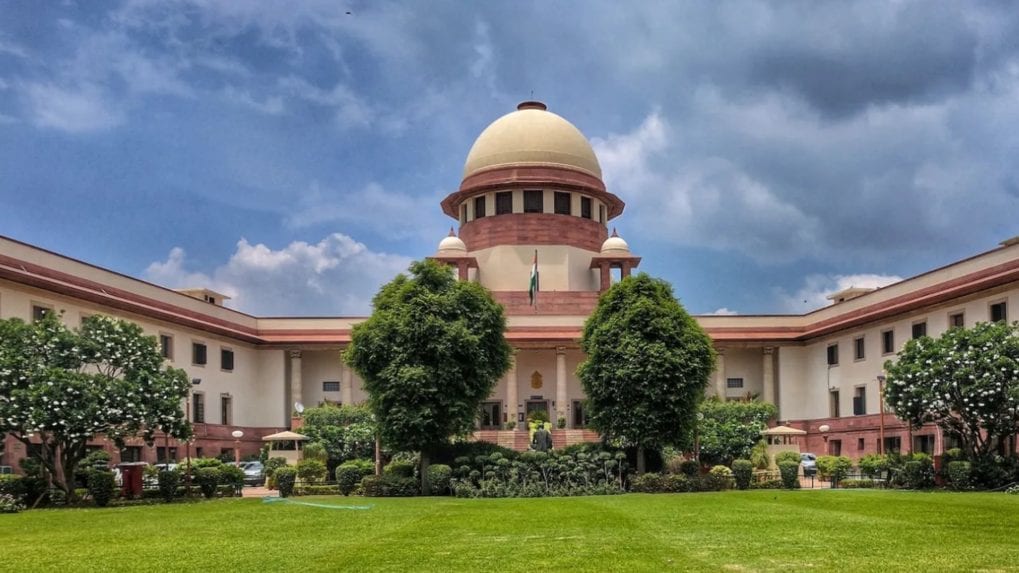“States have no jurisdiction over online games”, FIFS tells Supreme Court
Appearing for FIFS, Rohatgi framed fantasy sports platforms as entirely digital, skill-intensive, and structurally distinct from traditional gambling activities.
ADVERTISEMENT
In a significant hearing that could have lasting implications for India’s burgeoning online gaming industry, Senior Advocate Mukul Rohatgi, representing the Federation of Indian Fantasy Sports (FIFS), told the Supreme Court that fantasy sports are skill-based contests and cannot be equated with gambling or betting. His submissions were made in the ongoing appeal filed by the State of Karnataka challenging a Karnataka High Court judgment that had struck down amendments banning online games of skill.
Appearing for FIFS, Rohatgi framed fantasy sports platforms as entirely digital, skill-intensive, and structurally distinct from traditional gambling activities. He urged the bench to uphold the constitutional protection of such platforms under Article 19(1)(g) of the Constitution, which guarantees the freedom to practice any profession or carry on any occupation, trade, or business.
Opening his arguments, Rohatgi clarified the long-standing legal distinction between games of skill and games of chance, emphasizing that the Supreme Court itself, in judgments dating back to State of A.P. v. K. Satyanarayana and R.M.D. Chamarbaugwala, had held that games like rummy are predominantly skill-based. He argued that fantasy sports fall squarely within this category.
"Fantasy sports are not games of pure chance like flush or teen patti. Success is not left to luck. Rather, users must analyze statistics, study player performance, understand match conditions, and strategically select teams — much like professional selectors such as Rahul Dravid or Ravi Shastri do,” Rohatgi stated.
Rohatgi elaborated on the nature of fantasy sports, noting that they are internet-based competitions where users pay a standard entry fee to create virtual teams based on real-life players. These teams compete against other users, not the platform itself. Winners are determined based on predefined scoring metrics derived from real-world player performance.
Read More: Online Gaming industry needs for unified law amid regulatory patchwork
Importantly, he clarified that fantasy sports platforms do not receive any portion of the prize pool and do not bet against users. Citing a ruling from the U.S. District Court (Humphrey v. Viacom), he argued that where entry fees are unconditional and the prize is predetermined, the element of risk — a hallmark of gambling — is absent.
“The platform’s role is limited to administering the contest and facilitating prize distribution. It earns a fixed administrative fee, regardless of outcome. That is not wagering,” he told the Court.
Rohatgi strongly contested the power of states to legislate on fantasy sports, pointing to Entry 34 of the State List, which authorizes regulation of "betting and gambling." He emphasized that this phrase must be read conjunctively and applies only to chance-based betting.
"Games of skill fall outside the purview of Entry 34. The Constitution uses the phrase ‘betting and gambling’ as a single expression — not ‘betting or gambling’. This distinction is constitutionally significant and deliberate,” he said, citing multiple judgments including K.R. Lakshmanan v. State of Tamil Nadu and the Madras High Court’s decision in Junglee Games v. State of Tamil Nadu.
He also argued that where a dispute arises on whether a game is of skill or chance, it is for courts — not legislatures — to decide.
Taking the argument further, Rohatgi maintained that fantasy sports are purely digital activities conducted via the internet and therefore governed by the Union Government under Entry 31 of List I — which pertains to “posts and telegraphs; telephones, wireless, broadcasting and other like forms of communication.”
"Fantasy sports platforms have no physical presence. They require the internet for every transaction — from user registration to gameplay to prize disbursal. The medium is inseparable from the service, just like OTT platforms or social media," he said.
Rohatgi pointed to the Information Technology (Intermediary Guidelines and Digital Media Ethics Code) Amendment Rules, 2023, notified by MeitY, which define and regulate online real-money games, including mechanisms for KYC, user safety, and age verification.
“This comprehensive framework demonstrates that the Centre has occupied the field. Allowing States to legislate simultaneously would create regulatory chaos,” he warned.
To buttress his legal reasoning, Rohatgi cited peer-reviewed studies by researchers at MIT and IIM Bangalore which established that fantasy sports, particularly Dream11 contests, are skill-dominant. The studies showed that factors such as past performance, experience, and strategic team selection played a greater role than chance in determining outcomes.
In addition to Indian jurisprudence, he invoked U.S. law — including the Unlawful Internet Gambling Enforcement Act of 2006 — which specifically excludes fantasy sports from the definition of gambling if the outcome is based on skill and real-world statistics.
Rohatgi contended that the Karnataka amendment fails to make a valid classification between games of skill and games of chance, thereby violating Article 14 (right to equality). He invoked the doctrine of proportionality, arguing that banning a constitutionally protected business based on a flawed equivalence with gambling was neither the least restrictive means nor reasonable.
“Treating unequal entities — a game of skill and a game of chance — identically violates the equality clause. The State cannot paint them with the same brush,” he said.
He further argued that the restriction on fantasy sports amounts to a restriction on trade and business without justification, violating Article 19(1)(g).
Concluding his submissions, Rohatgi warned that allowing each State to legislate separately on online fantasy sports would lead to a patchwork of conflicting laws, criminalisation of legitimate enterprises, and harm to the livelihoods of thousands working in the sector.
“This isn’t just about games. It’s about constitutional structure, digital economy, and user rights. The central framework must prevail,” he said.
The hearing continues before the Supreme Court, which will have to decide whether States can ban or regulate online fantasy sports, or whether the Union alone holds that legislative power.
Read More: Breaking: “Fantasy Sports involve strategy, not wagering”, gaming firms tell SC


